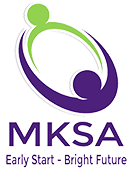When a parent first learns their child is being evaluated for a developmental delay, it can be a confusing, emotionally-charged time. It may be the first time a parent learns that their child may have long-term special needs. Or it may mean that their child needs some extra help to ‘catch up’ to his/her peers. Whatever the definition, it also means they will be navigating unchartered waters replete with new information and new people entering their life and the life of their child. Below are answers to some of the most common questions about early intervention (EI) in New York State, taken from the NYS Department of Health’s Early Intervention Program’s A Parent’s Guide:
1. How much do early intervention services cost?
If your child is determined eligible for the Early Intervention program, services are provided at no cost to families. Health insurance (including private insurance and Medicaid) is used to pay for early intervention services in New York State. In New York, family insurance policies are protected from being affected by payments for EI services. Only if your insurance company is licensed or regulated by New York State would your policy be used. Use of your insurance is voluntary if your policy is not subject to New York State regulation. When your insurance is used, co-pays or deductibles do not apply, even if your insurance company is not licensed or regulated by New York State and you volunteer to use your insurance for service.
2. How is eligibility for early intervention services determined?
All children are entitled to a free multidisciplinary evaluation to determine eligibility. Children with a diagnosed condition (i.e. Down syndrome) will always be eligible for services, however an evaluation will still be necessary to help plan for particular services. If your child does not have a diagnosed condition, but has a developmental delays, the evaluation will determine if your child is eligible for services.
3. What kinds of services are available?
EI services can include:
Special instruction
Speech-language pathology
Occupational therapy
Physical therapy
Vision services
Social work, nutrition, nursing, and psychological services
Assistive technology services and devices
Audiology
Family training/counseling/home visits/parent support groups
Medical services for diagnostic or evaluation purposes
Transportation to/from EI services
4. Where are services provided?
EI services can be provided in your home, your child care center or family day care home, early childhood programs and center, or at recreational centers, play groups, playgrounds, libraries, or other community places parents and children go for fun and support.
5. What is a Service Coordinator?
The Initial Service Coordinator is appointed to you by the Early Intervention Official (in NYS, an appointed public official who functions as the “single point of entry” for children into EI; all children under 3 who may need services are referred to the Early Intervention Official). He/she assists families through all the beginning steps along the way to having your child receive services. Once it is determined that your child is eligible for services, you will choose your Ongoing Service Coordinator, who coordinates all the services your child will receive.
6. What is an IFSP? Will my child need one?
An IFSP, or Individualized Family Service Plan is the written plan for the EI services your child and family will receive. All children that receive EI services have an IFSP. An IFSP includes the following: people and organizations involved (service coordinator name, professionals who will provide services, organizations/people responsible for paying for services), child’s current level of functioning (including any medical conditions, results of vision and hearing tests, as well as cognitive assessments and information on your child’s communication abilities and social development), family information (concerns, strengths and needs of your family and child) and list of services (specific services, frequency, provider(s) and outcomes (relevant, specific and measurable goals for your child).
For more information about early intervention services and how MKSA can help you navigate the process, click here.
